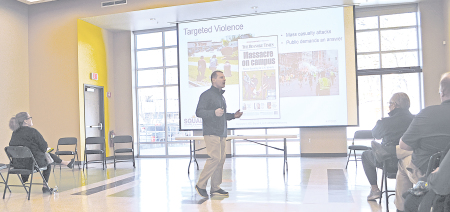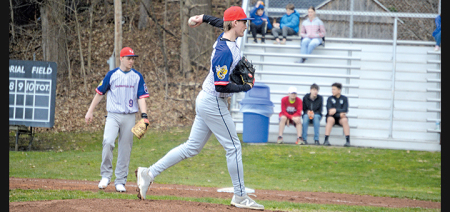Tilting At Windmills: A Quick And Dirty Lesson On How To Become A Published Author
Published:
May 5th, 2023
By:
Shelly Reuben

Often at parties, I am introduced as a published author.
In response, many guests assert that they, too, are authors, have written their first book, and are looking for a publisher. Then they proudly confide that they belong to writing groups in which the members comment upon each other’s works, complain about the difficulty of attaining recognition, and boast that to overcome the bias of conventional publishers, they will find the attention they so richly deserve by publishing their novels themselves.
This is a comparatively new phenomenon, which has arisen for two reasons. One, a belief on the part of “wannabe” writers that every effort to succeed in the arts deserves instant gratification. Two, an explosion of “vanity presses” promoting themselves as legitimate publishers.
Here are some selling-points I gleaned off the Internet that illustrate how these presses market their services:
You have complete control if you self-publish. You get to choose the title, the cover art, and the price.
Rather than submitting an endless flow of query letters to literary agents who will expect you to adhere to a deadline, you can finish your book whenever you like.
Traditional publishers can take up to 85 percent of your royalties, but if you self-publish, 100% of the royalties are yours and yours alone.
Instead of seeing a growing stack of rejection letters on your bookshelf, you will see a growing collection of carefully edited self-published books.
Self-published books are testimonials to your writing skills, to the knowledge and experience behind each title, and to your marketing ability.
Not too long ago, I served on a panel at a writer’s conference, and the topic was “Conventional Publishing Versus Self-Publishing.” Unsurprisingly, the three panelists who had achieved some measure of commercial success (myself included.) were dismissive of self-described “authors” who considered their first efforts to be the equal of anything penned by Edgar Allan Poe or John Steinbeck. Having been praised by their writing groups, friends, and relatives, they are raring to go.
More praise is heaped on them by the vanity press itself, which risks nothing, because all book-related expenses are paid for by the aspiring author. (According to WordsRated, a self-described non-commercial, international research data and analytics group, 90% of self-published books sell less than 100 copies, and the number of self-published books has increased by 264% in the last five years.)
I completely understand any writer’s eagerness to get published. Regardless of its literary merit, the ultimate product often looks beautiful, with a gorgeous book jacket and elegantly designed pages. It even smells like a new book should. Something like a new car smell … but better.
Before I sold my first novel, my most ardent aspiration was to hold a book I had written in my hot little hand and to be able to say to myself, “I DID IT.” But my desire to be published did not trump my primary goal, which was to write something worth reading. I had always known that I wasn’t a genius, but I figured that if I worked harder than anyone else, never stopped learning, and never stopped trying, someday, I might be able to write a great book.
And this is where the concept of building a writing career with a checkbook in one hand and a few clicks on a computer with the other loses its momentum. Because unless one is both brilliant and lucky – Beatrix Potter and Jane Austen come to mind – writing is a skill that, like any implement requiring care and maintenance, becomes more valuable when it is sharpened.
Enter … rejection.
Let’s start with literary agents. They can turn down our work because they are in a bad mood, because they feel the writing is terrible, because they are conformists and are only interested in what is selling NOW, or for any number of reasons. Every once in a while, though, one of them sends a thoughtful rejection letter pointing out what is admirable about the book and offering suggestions on how to improve it. When that happens, and when the advice is good, the writer learns something.
Sometimes, we learn that the literary agent doing the rejecting is an idiot. Sometimes we learn that we should put our manuscripts away until the timing is right. Sometimes we learn that our book is too long. Or too short. Often, both are said about the same manuscript, which teaches us to discriminate sound advice from unsound advice. Eventually, if we are both persistent and lucky, an agent will write “I love your book,” and take us on.
But even after we’ve found a publisher, our editor might dislike a word or phrase, believe a characterization is inadequate or a scene tediously executed. At times, the editor is right. At times, she is wrong. And at times, it doesn’t matter which, because both ways are equally good or bad.
When my book JULIAN SOLO was in the works, my editor at Dodd, Mead & Company decided I should delete the epilogue. I had worked very hard on it, and thought it was brilliant. But after I saw the big blue line slashing through my prose, I realized that she was right. Not only was the epilogue unnecessary, it sucked all the drama out of the denouement.
When working on ORIGIN AND CAUSE, my editor at Scribner told me that the higher-ups had demanded I eliminate a word they considered “politically incorrect.” When I objected, she said, “Shelly. You’ve got to learn to pick your fights.” So, I rewrote the entire paragraph, thus avoiding the battle, but keeping true to my original concept.
What I’m saying is that unless we are Charles Dickens, Dostoyevsky, or Michael Crichton, we can no more wake up one morning and say “I am a writer” than we can wake up and suddenly declare ourselves to be brain surgeons. Knowledge has to be acquired. And skills have to be attained.
I am not, by the way, indicting all self-publishing. I self-published a book about my father, called COME HOME. LOVE, DAD because I planned to give it to guests at my mother’s 85th birthday party. It was never meant to be a commercial success, but my family was aging, and I wanted them to be able to read it while they still had time.
I also self-published several books that had previously appeared in other media (serialized in newspapers, published as audio books, or out-of-print), my only caveat being that it had to have been published commercially somewhere else first … just to keep myself honest.
My friend Betty Ulius, a successful Hollywood screenwriter, self-published her brilliant novel DANGEROUS BEHAVIOR because she had cancer and wanted all of her friends to have copies before she died.
Self-publishing is also a great option for people who want to write autobiographies, biographies, books on obscure topics with a limited audience, technical manuals, or even poetry. Anything, actually, to give to friends, family, and co-workers, or even to sell at conventions or on the Internet. Speaking of memoirs, I’ve read some by people who previously had written nothing longer than a shopping list but told their stories in skillful and captivating ways.
The point I am trying to make is that becoming a commercially published novelist is, with rare exceptions, hard work. Not many aspiring authors want to hear that, and I cannot remember a single one willing to listen when I stated that, “Before I found a literary agent, I submitted over 500 query letters, and was rejected at least 499 times.”
Rather than contemplate such an arduous task, they allow themselves to be seduced by the siren song of self-publishing.
Does it bother me? No. Not really. But it saddens me, because some have the potential to produce really good books. With few (very few) exceptions, though, they won’t. Not ever. Not unless they learn to accept criticism when it is good. Ignore criticism when it’s bad. And like the fourth line in THE SERENITY PRAYER, acquire, through trial and error, “the wisdom to know the difference.”
Copyright © Shelly Reuben, 2023. Shelly Reuben’s books have been nominated for Edgar, Prometheus, and Falcon awards. For more about her writing, visit www.shellyreuben.com
Author: Shelly Reuben - More From This Author
Comments








